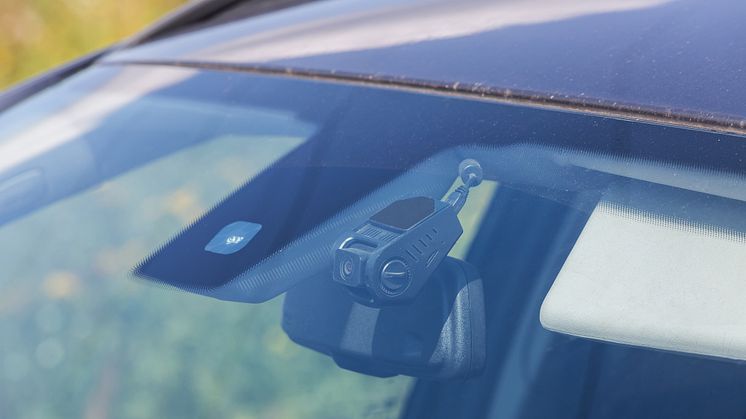
Press release -
89 dashcam videos of driving offences sent to police every day
As many as 89 dashcam video recordings of alleged motoring offences were submitted to police forces every day in 2019, according to data analysed by the RAC.
A total of 32,370 pieces of footage were received by 24 police forces that accept video evidence of driving offences from members of the public, double the number recorded in 2018 (15,159). Data from the RAC’s freedom of information request also shows that a quarter of these (25% – 8,148) went on to result in prosecutions.
Police forces, according to the RAC’s study, are making it increasingly easy for drivers and other road users to submit camera footage of unsuspecting alleged rule-breakers, with all of Britain’s 44 forces now accepting dashcam video, and the vast majority online via their websites.
The greatest number of potentially prosecutable offences in 2019 were – perhaps unsurprisingly – submitted to The Met Police, a total of 8,082. Surrey had the second highest tally with 3,542, followed by West Midlands – 3,242 in third spot and Gwent – 3,037 – in fourth. Greater Manchester received the fifth highest number of dashcam videos with 2,940.
The footage submitted to police related to the following offences: dangerous driving, careless driving/driving without due care and attention, driving too close to cyclists, contravening red traffic lights, contravening double white lines, contravening ‘no entry’ signs, illegal use of a handheld mobile phone and evidence of vehicles apparently without MOTs.
RAC road safety spokesman Simon Williams said:
“Even before the decline in the number of roads police enforcing traffic offences, law-abiding drivers were often frustrated that there was never an officer there to deal with infringements they witnessed. The advent of dashcams, phones with cameras and helmet cameras have been a game changer as drivers can now easily submit footage to almost every police force.
“As so many drivers and cyclists are now using dashcams and helmet cameras every road user needs to be very conscious that any of their actions that aren’t in accordance with the law could end up with the police. Some will inevitably find this out the hard way while others will hopefully become increasingly mindful of it.
“In terms of how effective dashcams are from a law enforcement point of view our freedom of information request shows that one-in-four footage submissions lead to a successful prosecution.
“There are no doubt numerous reasons why this figure isn’t higher, but we suspect it has to do with the recorded evidence not being as conclusive as it needs to be. This may be due to the nature of the offence, with certain offences such as double white line, red traffic light and ‘no entry’ contraventions being easier to determine than illegal handheld mobile phone use and careless driving.
“It might also be the case that footage filmed on mobile phones is not as comprehensive for officers to work with as video evidence from dashcams and helmet cams which film live footage continuously when the vehicle is in motion. Those choosing to submit mobile phone video – whether as passengers or pedestrians – may well have missed the worst of the alleged offence as they reached to capture it.
“With more and more people getting dashcams the message for 2021 has to be: always drive as if you’re being watched by the police. If more drivers who are inclined to break the laws of the road were to think this way, the safer the roads would be for all of us.”
The RAC stocks a range of dashcams at varying price points at: www.racshop.co.uk/dash-cams.
Key for table: DNP = Did not provide; NH = Not held; DNR = Did not respond
Topics
Categories
Notes to Editors
* Bedfordshire figure/s are the combined figure/s for Bedfordshire, Cambridgeshire and Hertfordshire Police
** Norfolk figure/s are the combined figures/s for both Norfolk Police and Suffolk Police
*** Drivers are asked to contact Police Scotland via 1010 first before submitting footage
The press office email address is press.enquiries@rac.co.uk. Please note: the press office is unable to help with individual customer enquiries - please visit the RAC contacts page to find the right contact.
ISDN radio studio facilities are available for interviews Monday to Friday.
About the RAC
The RAC provides complete peace of mind to 12m UK private and business drivers, whatever their motoring needs. Its services include:
- Breakdown assistance. Its highly-skilled, 1,600-strong branded patrol workforce attends more than two million breakdowns every year, fixing on average four out of five vehicles at the roadside. The RAC’s patrol fleet is one of the most advanced in the UK, and was the first to roll out both an All-Wheels-Up recovery system, allowing the vast majority of vehicles to be recovered from a single patrol van, and EV Boost mobile electric vehicle charging units
- Insurance. The RAC is a top-five car insurance broker having surpassed the 500,000 policies-in-force milestone in 2018. It also offers ‘black box’ telematics policies, as well as home and travel insurance
- Other motoring services. The RAC leads in the development of new solutions for business, fleets, electric vehicles and future car technology. Its additional products and services include a personal loans offering, a used car buying website, vehicle inspections and checks, legal services or up-to-the-minute traffic and travel information. It also has a network of Approved Dealers and Approved Garages which combine the trust of RAC brand with local service and convenience
The RAC also works to support the interests of its members and UK drivers on the most important motoring issues which it identifies via the annual RAC Report on Motoring and the RAC Opinion Panel. The Report on Motoring is the longest running analysis of driver opinion in the UK having been published every year since 1989.
For more information about the RAC, visit the RAC website.

